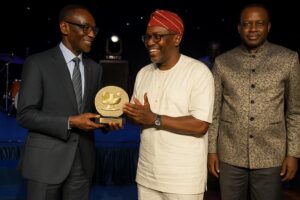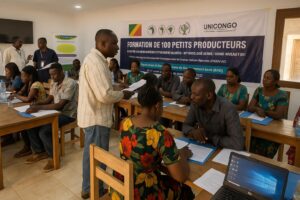Telecom Outreach Resonates in Pointe-Noire
On 24 July, the usually bustling Boulevard Charles de Gaulle in Pointe-Noire acquired a distinctly conversational atmosphere. MTN Congo, the subsidiary of the Johannesburg-based MTN Group, suspended its routine retail rhythm to host a customer engagement day that invited subscribers to speak first and executives to listen. The event, branded with the revealing simplicity of “Customer Engagement Day,” drew a varied crowd ranging from small-business proprietors to students seeking more reliable data bundles.
Senior Commercial and Administrative Manager for Pointe-Noire South, Alfred Geoffroy Yembe-Boko, framed the exercise in disarmingly direct terms: the day belonged to the clientele. In a market where prepaid users predominate and brand loyalty can prove elusive, the willingness to solicit candid feedback is increasingly a competitive asset.
Customer-Centricity and Market Dynamics
The Republic of Congo’s mobile penetration rate surpassed 100 percent in 2022, yet service quality surveys conducted by the national telecoms regulator reveal persistent gaps in coverage and pricing transparency (ARPTC 2023). In this context MTN’s outreach appears less a public-relations flourish than a strategic necessity. Competition from Airtel Congo and the recent market entry of Équinoxe Télécom have intensified the incentive to fine-tune client experience.
Industry analysts trace the shift to a regional pattern. Across Central Africa, operators are transitioning from a volume-driven subscription race to a value-driven retention strategy, leveraging loyalty programmes, micro-finance wallets and cloud services to deepen customer ties (GSMA 2023). MTN’s Pointe-Noire exercise reflects this continental re-orientation toward experiential metrics over raw subscriber counts.
Digital Ambitions Align with National Strategy
Beyond corporate calculus lies a policy backdrop that rewards such initiatives. The government’s 2022-2026 National Development Plan singles out digital infrastructure as a catalyst for economic diversification, aiming to lift the digital sector’s contribution to GDP from 3 percent to 10 percent within the plan’s timeframe (PND 2022-2026). By cultivating user trust and showcasing advanced services, MTN aligns itself with this broader developmental objective without courting overt political overtones.
Diplomats stationed in Brazzaville note that international financial partners increasingly assess telecom operators on community engagement indicators alongside network expansion metrics. In that sense, the Pointe-Noire gathering may strengthen MTN Congo’s standing in prospective public-private initiatives, including forthcoming rural connectivity tenders supported by the African Development Bank.
Technological Innovations Behind Code *154*
At the heart of the showcase stood a seemingly modest innovation: a unified short code, *154*, designed to aggregate the operator’s disparate service menus. While technically routine, the code symbolises an infrastructural pivot toward service convergence. Subscribers can now traverse mobile money, cloud storage and entertainment portals without memorising multiple USSD strings, a convenience that reduces call-centre load and raises transaction frequency.
Cloud Web Service demonstrations drew particular attention from small-scale entrepreneurs who frequently cite data localisation and platform cost as barriers to entry. MTN engineers presented locally hosted virtual private servers priced in Central African CFA francs, a gesture resonating with the government’s preference for domestically anchored digital assets (Ministry of Posts, Telecommunications and the Digital Economy 2023).
Subtle Shifts Shape Future Connectivity
By evening, the yellow-branded tents had folded, yet the operator’s calculus of loyalty had acquired fresh data points. While immediate revenue effects remain speculative, the initiative reinforces a subtle but meaningful trend: the telecom sector’s centre of gravity is tilting from infrastructure roll-out to user perception management. That shift dovetails with the Republic of Congo’s aspiration to harness digitalisation as a foundation for resilient growth.
For Pointe-Noire’s residents, accustomed to weighing network promises against the realities of download speed, the proof will arrive in dropped-call statistics and seamless mobile money transfers. For policymakers and foreign observers, the day served as a reminder that corporate listening exercises can dovetail neatly with national aspirations, offering a window into a more participatory—and potentially more robust—digital ecosystem.





















